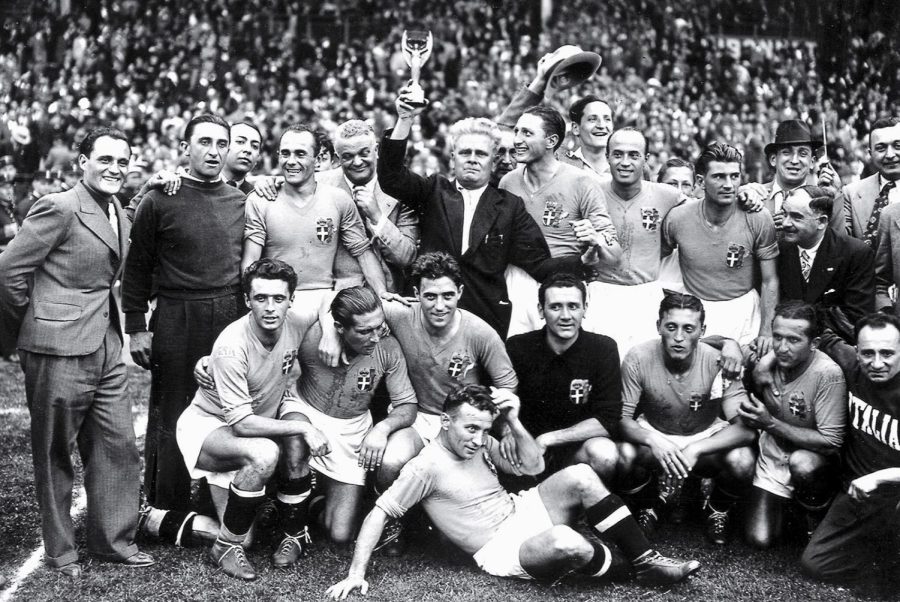The World Cup: A History of Controversy
November 17, 2022
This Sunday, 11/20, the 2022 Men’s FIFA World Cup begins in Qatar. Unfortunately, the tournament for this year has been overshadowed by significant human rights and political controversies. Controversies are nothing new for countries hosting the World Cup, and it’s not unbeknownst to FIFA, as they had a major corruption scandal in 2015, leading to their president being banned from the association for decades.
World Cups are inherently very political due to their massive scale of attention. Because of this platform, these countries use the tournament to try to boost or mask their world image. The major controversies often stem from when FIFA selects nations to host the World Cup that are going through problematic or oppressive regimes.
To mask, change, or boost their nation’s reputation, they attempt “sportswashing,” a term used to describe when governments use sports to improve reputations tarnished by wrongdoing. This year’s World Cup is a prime example of this occurring.
Qatar has been exposed due to its awful treatment and living conditions against migrant workers (at least 6,750 migrant workers have been reported to have died since Qatar won the rights to host the 2022 World Cup ten years ago). Its extreme social laws against the LGBTQ+ community, and its shaky winning bid for the World Cup back in 2010 have raised the alarms of many. With all this scrutiny over the nations handling of the tournament, there has been no true accountability from Qatar and the World Cup moves on as planned.
This is not the first instance of a country trying to mask or use “sportswashing” to boost their nation’s reputation. Frankly, there is a precedent of this occurring, as in the 1934 Italy and 1978 Argentina World Cup, where these nations masked their injustices with the beautiful game.
In 1934, Mussolini used the World Cup to promote fascism to the world. The tournament included nationalistic propaganda, fascist salutes, and great amenities/facilities for visitors, all to promote the idea that fascism was the way of the future. The Italian squad hosting had incredible pressure from Mussolini to win the tournament. The Italians had reached the final, where they would play Czechoslovakia, meaning a matchup of communists versus fascists. Italy would end up winning the final game 2-1, leading to great national pride for Mussolini. Five years after this final, fascism would spread throughout Europe leading to WWII.
In 1978, Argentina hosted the World Cup under the regime of Jorge Videla. He was the dictator of Argentina from 1976-1981, during his time as dictator, he oversaw the Dirty War, where an estimated 30,000 people were murdered or disappeared to silence social and political opposition. Many of those who were part of the “disappeared” were children, young people, and those dubbed as left-wing activists. The sheer brutality of the torture and kidnappings occurring in the country made hosting a World Cup there even more unacceptable. Many were sent to detention centers, where they were likely raped and tortured brutally. It has been said that the victims who had died from torture were machine-gunned at the edge of enormous pits and thrown from airplanes into the sea.
While these horrors occurred, Argentina as the host nation ended up winning the 1978 World Cup under immense pressure from the junta. Globally, people saw another way for them to blind the world from the nation’s injustices with a World Cup victory.
As time goes by, every four years, it is hard for us as spectators not to continue to enjoy the World Cup spectacle and have pride in our nations. Still, it is essential to have the world hold FIFA and each nation participating accountable for their actions as nations. Without this accountability and scrutiny, there is no hope of change from each country and FIFA, which continuously partners with questionable governments. Until this scrutiny and controversy lead to significant drops in viewership and revenue, it is unlikely that we will see “sportswashing” and these controversial selections vanish from our sports and the World Cup.
Sources
https://www.history.com/news/mothers-plaza-de-mayo-disappeared-children-dirty-war-argentina
https://nypost.com/2022/11/15/all-the-controversies-surrounding-the-qatar-world-cup-in-2022/
https://www.history.com/news/mothers-plaza-de-mayo-disappeared-children-dirty-war-argentina



